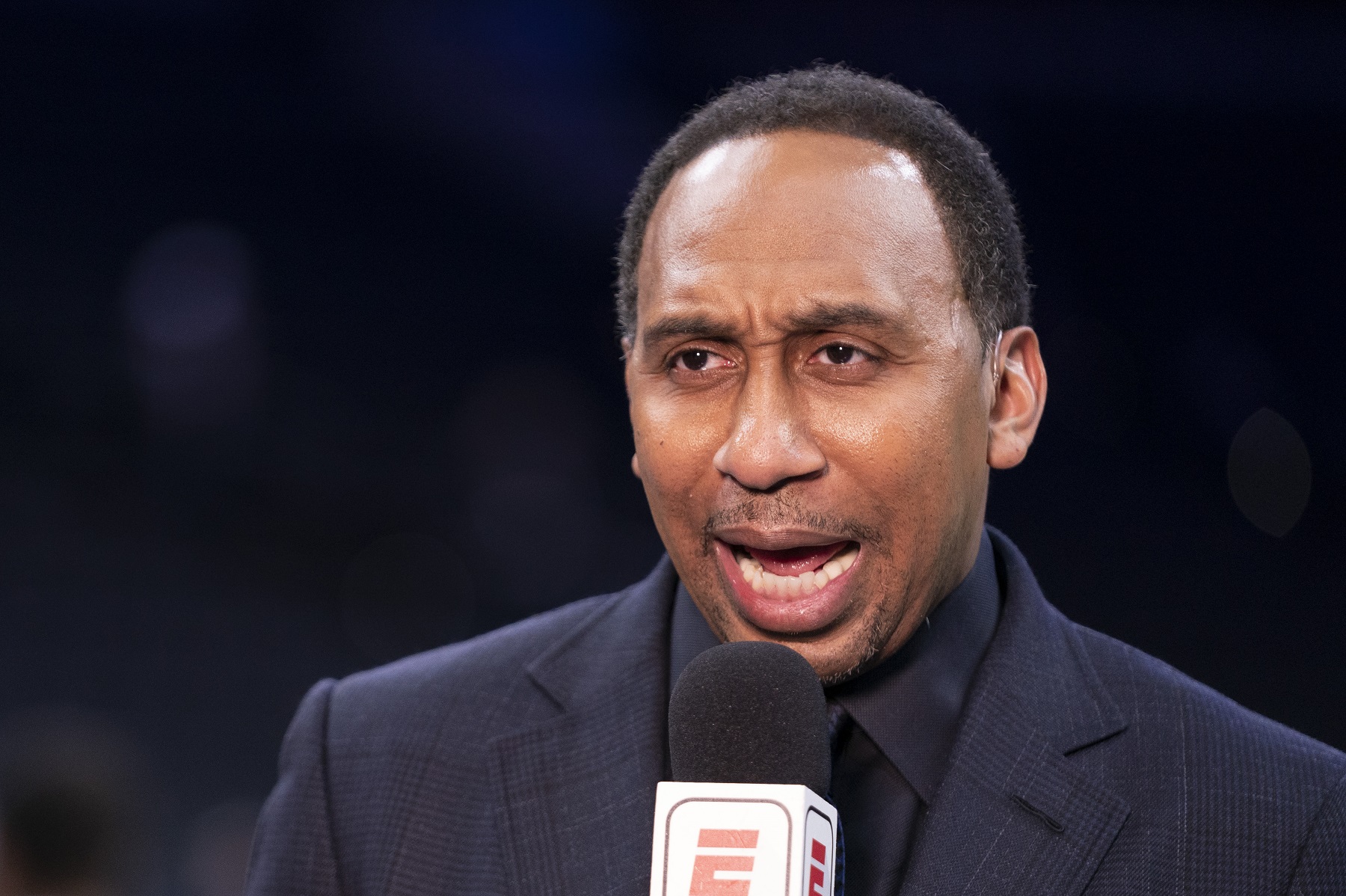NFL
ESPN’S Stephen A. Smith Has an Idea for Paying Running Backs That Defies a Basic Law

His heart may be in the right place, but Stephen A. Smith’s butt should have been in a seat in a freshman economics class 35 years ago. The ESPN talker is correct in asserting that NFL running backs have become a disposable resource to general managers. But his proposed solution for getting consistent producers like Derrick Henry and Mark Ingram paid is fundamentally flawed.
Stephen A. Smith doesn’t like how running backs are paid
RELATED: Just How Big Is Tennessee Titans Running Back Derrick Henry?
The top of the NFL salaries list is dominated by quarterbacks. Russell Wilson of the Seattle Seahawks is No. 1 at $53 million, followed by Los Angeles Chargers defensive end Joey Bosa at $43 million. The next six names on the list are quarterbacks.
You won’t find any NFL running backs until Christian McCaffrey of the Carolina Panthers at $22.325 million, good for 25th place, according to Spotrac.com. Ezekiel Elliott, Dalvin Cook, and Alvin Kamara are the only other backs making more than $15 million.
Derrick Henry, running away with the rushing title with 588 yards through five games, is making $15 million in the first season of a four-year, $50 million deal – only half of which is guaranteed.
Stephen A. Smith looks at numbers like that and shakes his head in disbelief.
“We know he’s worth more than that based on what he did last year,” Smith said of Henry on ESPN on Oct. 22. “I would’ve loved to see Derrick Henry get $20 million for this one season and then you come back after this one season and say, ‘OK, what are you worth now?’ I’d love to see a running back treated that way.”
Stephen A. Smith takes it a step farther
RELATED: Where Did Stephen A. Smith Go to College?
The second most important reason that NFL running backs don’t make more money is the salary cap. The collective bargaining agreement between NFL players and owners sets the ceiling on how much each team can spend. And unlike the NBA, which has a variety of exceptions, the NFL salary cap is a hard cap.
With quarterbacks like Patrick Mahomes, Tom Brady, and Ben Roethlisberger the most important players on their respective rosters, those are the stars getting paid the most by their teams. Some other star signal-callers like Lamar Jackson are on rookie contracts and in line for big paydays on their next contracts.
Once you get past quarterbacks and a couple of other top performers, money under the salary cap grows tighter.
“I would like to see there be a cap exception when it comes to running backs,” ESPN’s Stephen A. Smith said on First Take. “You can exceed it. You know how in the NBA you’ve got Larry Bird (exceptions), stuff like that. In the NFL, I’d love to see a cap exception, something along those lines where you’re allowed to exceed the cap in order to pay running backs.”
Smith does put one caveat on the idea. Such contracts for NFL running backs would be one-year deals, which would limit a team’s exposure.
The law of supply and demand
RELATED: Stephen A. Smith Rips the Steve Nash Hiring: ‘This Is White Privilege’
The biggest reason NFL running backs don’t make what quarterbacks pull down is something that Stephen A. Smith should have learned in a college economics class: It would defy the law of supply and demand that says the size of the talent pool is more important than a running back’s time in the 40-yard dash or his number of touchdowns.
There aren’t as many highly paid running backs because the demand no longer exists in a league in which the passing game rules. Yet, there remains a nearly endless supply at a time in which teams seldom line up in two-back formations. It’s too easy for teams to replace a 28-year old back who just rushed for 1,000 yards in a season with a 22-year-old fresh out of college that they think can rush for 800. The rookie on a four-year deal will cost them a fraction of what the veteran costs.
Supply and demand is also why you find a kicker making more than $7 million this year. And, despite teams lining up in three- and four-receiver sets, DeAndre Hopkins ($29 million) and Julio Jones ($22.2 million) are the only receivers in the top 35 salary list; there’s a glut of fresh faces available at that position every year, and NFL teams drafted 35 of them last April alone.
Like Sportscasting on Facebook. Follow us on Twitter @sportscasting19.











